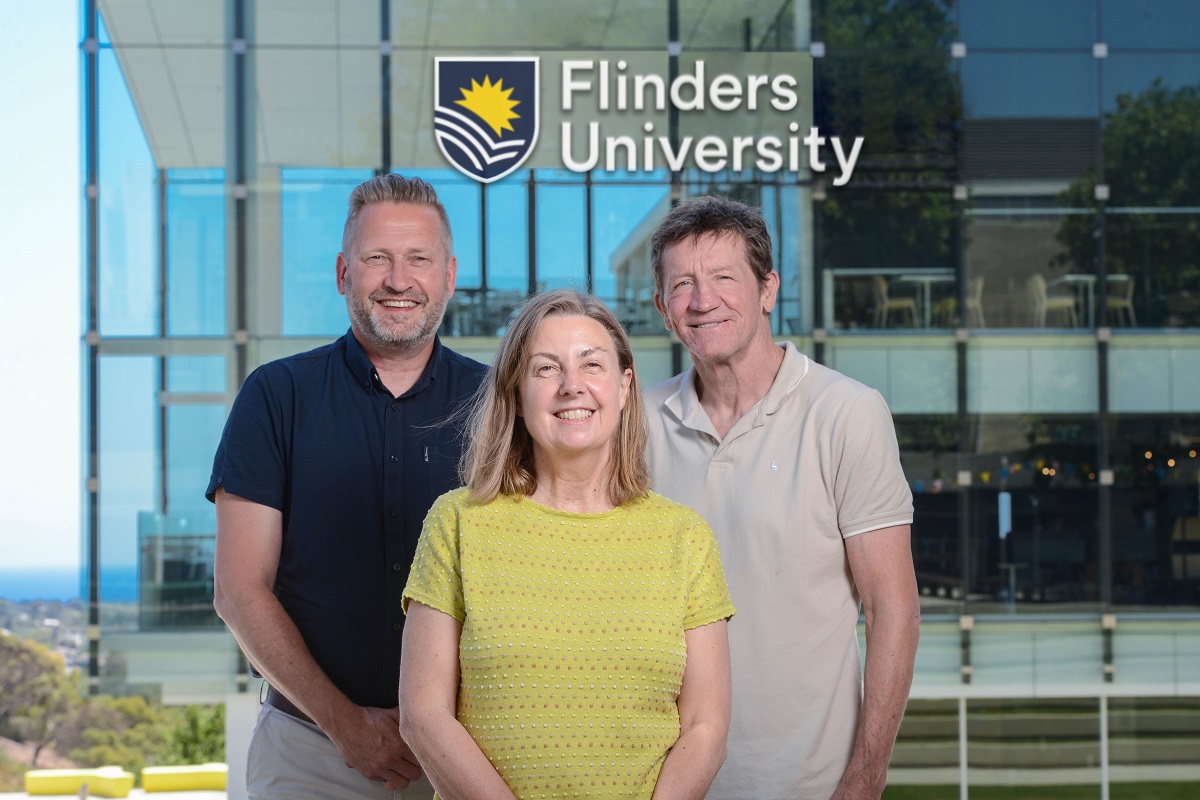
In collaboration with Breakthrough Mental Health Research Foundation and Little Heroes Foundation, Flinders University has announced the creation of the Little Heroes Professor of Child and Adolescent Mental Health at the Flinders University Institute for Mental Health and Wellbeing.
Mental health issues affecting young people have increased more than 30% in the past 15 years, according to the July 2022 Australian Bureau of Statistics’ National Mental Health Survey.
18-year-old Taylor says it was the superficiality of social media that impacted her mental health and led her to suffer an eating disorder. Regularly comparing herself to models and influencers online, she began exercising more and eating less.

“Through the eyes of society, being healthy means to be thin, eat cleanly, and look a certain way. That is heightened and perpetuated through social media. And so, to me, being healthy meant eating only good food, exercising a lot, and ensuring that I wasn’t overweight. Little did I know that being underweight was just as unhealthy,” says Taylor.
Making strong inroads to address the mental health crisis, the research of the Flinders University Institute for Mental Health and Wellbeing has been supported by the Breakthrough Mental Health Research Foundation since its inception in 2018.
Now, in collaboration with Little Heroes Foundation, the three entities have been strengthened by the creation of the Little Heroes Professor of Child and Adolescent Mental Health at Flinders University.
The new position will be funded for five year through a generous donation of $1.2m from Breakthrough Mental Health Research Foundation and Little Heroes Foundation.
The Little Heroes Professor of Child and Adolescent Mental Health will be responsible for leading a research program in child and youth mental health across prevention, early intervention and treatment; liaise with other child and adolescent mental health researchers; promote the research outcomes and liaise with service providers in South Australia to build capacity in evidence-based practice.
CEO of Breakthrough, John Mannion says the decision to fund the new appointment underlines a more strategic approach to mental health support.
“There is an urgent need to expand the research and rapidly translate findings into interventions and support systems. A dedicated Professor will help achieve this by bringing a more strategic approach to mental health support for young people, attracting more funding and investment, and attracting more high-quality researchers,” says Mr Mannion.
Matthew Flinders Distinguished Professor Tracey Wade, Director of the Flinders University Institute for Mental Health and Wellbeing, says the new position will have a transformative effect on the Institute.
“It’s a progressive move that underlines Flinders University’s position as a leader in the research and treatment of young people’s mental health issues,” says Professor Wade.
“The mental wellbeing of adolescents aged 13 to 18 years worsened significantly during the pandemic, as social isolation, increased screen time and excessive social media use influenced greater deterioration. This equated to increases in mental illness – with the overall incidence of eating disorders increased by 15.3% in 2020.”
“We need new solutions in a rapidly changing world environment, and having the best minds dedicated to this issue means we can formulate breakthrough interventions.”
Chris McDermott, Chair of Little Heroes Foundation, is proud to have expanded the charity’s long history of paediatric health support to now include a stronger focus on mental health care for young people.
“This new venture takes the relationship that already exists between Little Heroes, Breakthrough and Flinders University to a new level, bringing all of these organisations’ strengths together and amplifying their impact,” says Mr McDermott.
“We understand that there is great need and demand for improvement in this area of mental health provision for young people, and we see this as a very long-term commitment that Little Heroes Foundation will be involved with.”
After her diagnosis, Taylor began her challenging road to recovery.
“Sharing what I was going through made a huge difference and gave me a more positive mindset, and meeting others who shared similar experiences also had an incredible effect on my recovery,” says Taylor
“I am incredibly thankful for the love from family and friends who supported me all the way through my recovery. Having that close support network gave me the motivation to overcome my difficulties.”
With a new outlook on life, Taylor is about to embark on a Bachelor of Primary Education at Flinders University.

